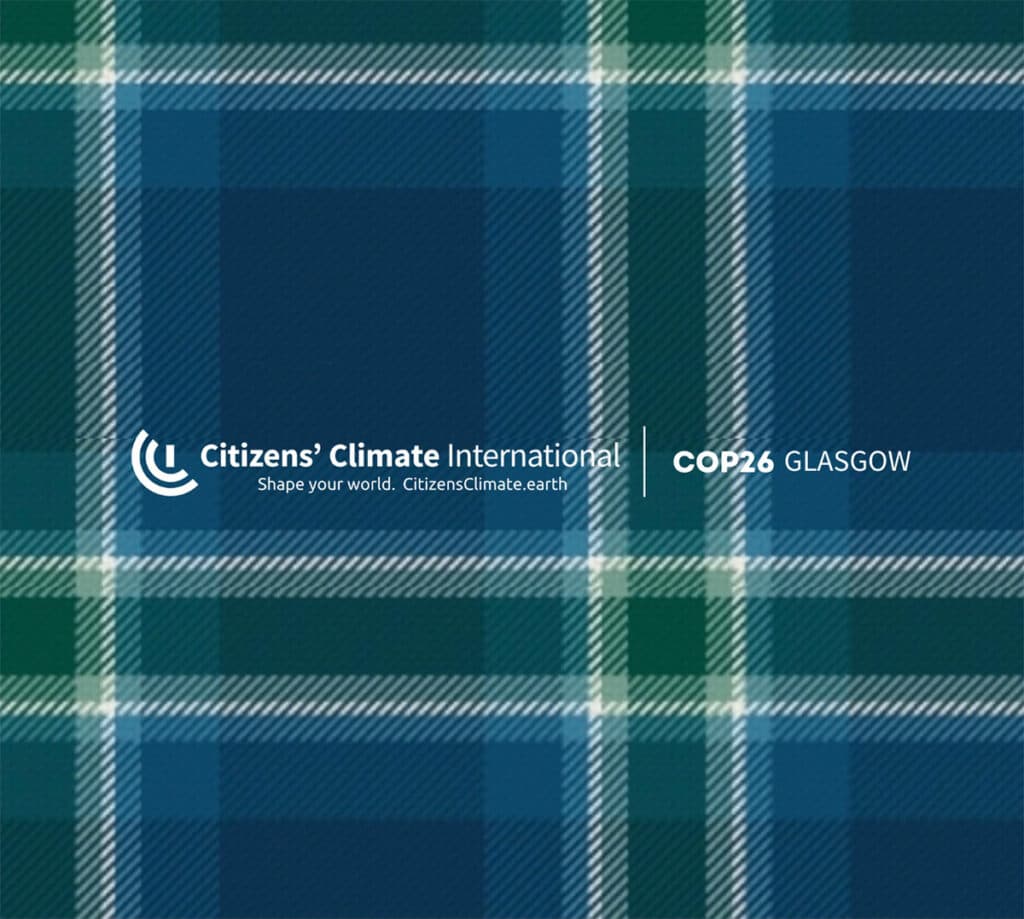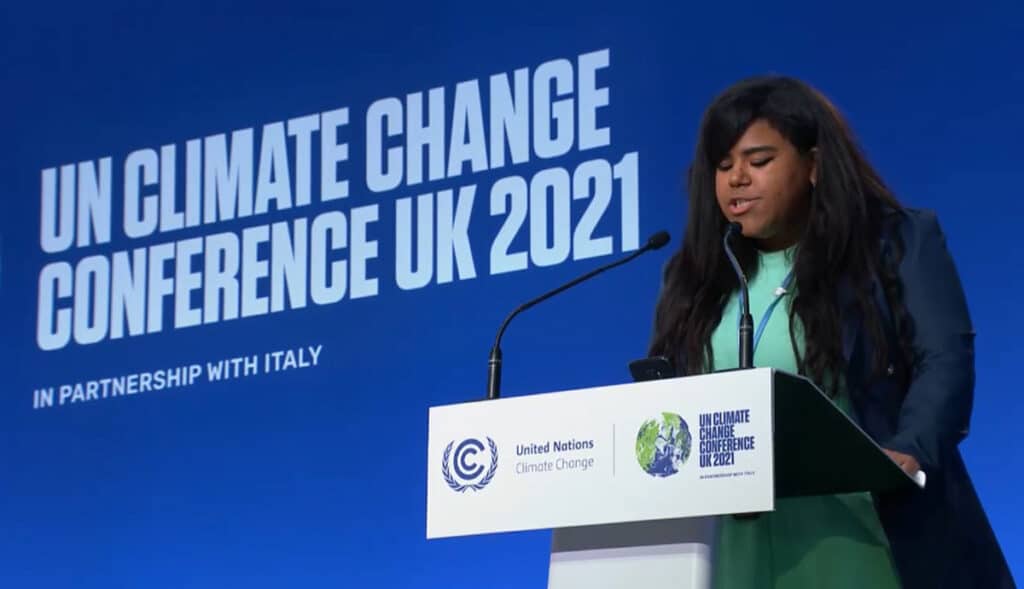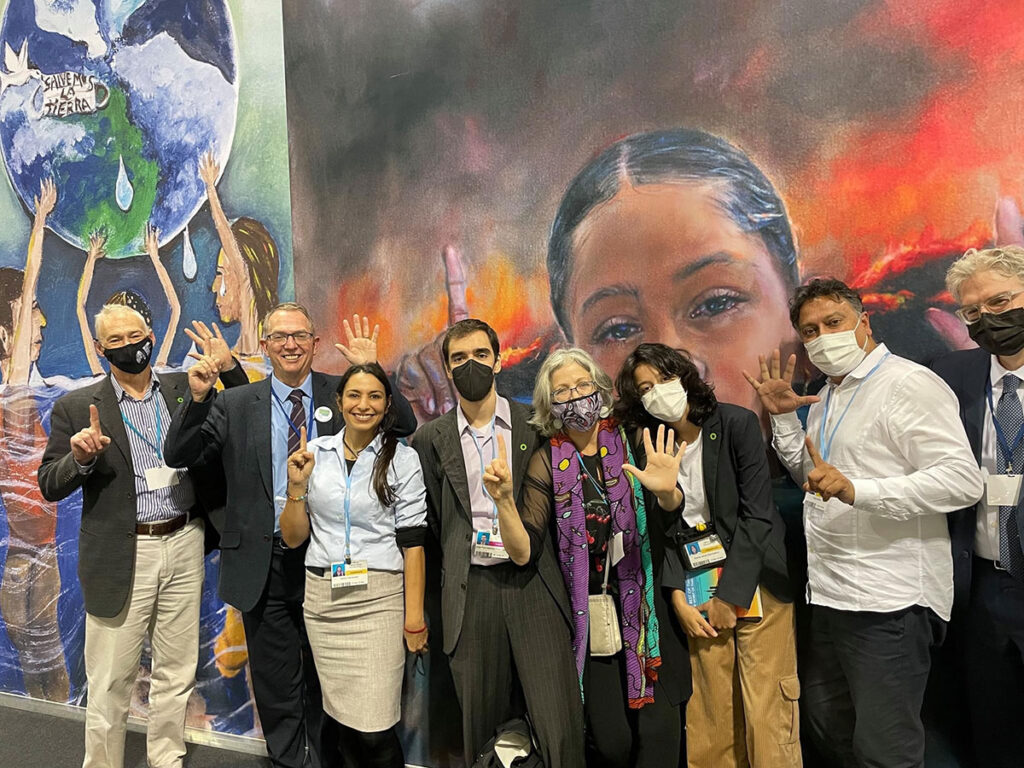BLOG / BLOG POST

Image credit: Citizens’ Climate International, 2021.
We Need Stakeholders at the Table to Raise Ambition
By Joseph Robertson
Citizens’ Climate International is a US-based non-profit organization whose mission is to empower citizen volunteers to exercise personal and political power in the shaping of effective climate policy. In this guest blog post, Executive Director Joseph Robertson discusses his experience at COP26, held earlier this month, and why we need all stakeholders at convenings on climate change and the environment.
The COP26 United Nations Climate Change negotiations in Glasgow had a historic mandate: to significantly enhance the ambition of national and global climate actions plans. Success would mean setting us on a course where industrial and financial systems align with rapid emissions reductions and no more than 1.5ºC of global heating.
As an international nonprofit organization serving stakeholders in 75 countries, Citizens’ Climate International has consistently called for inclusion as an engine for raising ambition. We warned in February of 2020, and again a year later, that exclusion of stakeholders and observers would narrow the thinking of political leaders and reduce the ambition of outcomes.
COP26 was delayed a full year and took place in the middle of a still deepening global pandemic. That 120 heads of state were able to attend, along with nearly 30,000 delegates and observers, is an accomplishment. But that accomplishment came at the cost of equity and inclusion.
Severe restrictions on observers’ access to negotiating rooms did, in our view, leave us with less ambitious outcomes than should have been achievable. And, it is troubling that numerous small island developing states, some of the most vulnerable to climate change, were unable to travel to Glasgow at all. Additionally, Indigenous voices inside the negotiations were not nearly as numerous or central as they should have been.

Image credit: Citizens’ Climate International, 2021.
In our outline of needed elements for the Glasgow Work Programme on Action for Climate Empowerment, we note the need to measure how well nations integrate diverse or traditional knowledge into their deployment of best-available science for climate action.
Climate change will not be solved by technology and industry alone. It must be solved by systems that welcome, integrate, and serve marginalized and front-line communities. Every year we delay in devising and deploying such inclusive systems, we limit our ability to escape the worst impacts of persistent climate emergency.

Image credit: Citizens’ Climate International, 2021.
We were proud to include Andrés Jimenez, Executive Director of Green 2.0, and a founding member of the CCI Board, in our delegation at COP26. Together, we aim to expand and diversify the civic space connected to the global climate negotiations.
The COP26 did include a number of breakthrough moments, where the experiences that make all of us vulnerable to climate disruption were recognized, and the urgency of acting now to avoid unmanageable and catastrophic change was endorsed by leaders and negotiators, as well as stakeholders.

Image credit: Citizens’ Climate International, 2021.
But the Glasgow Pact does not commit all nations to ending new fossil fuel exploration. It does not commit wealthy nations to the volume of direct climate-related financial assistance required to ensure the transition is global and irreversible. While it does commit to “phase-out of inefficient fossil fuel subsidies,” it does not define all subsidies for global heating pollution as inefficient.
What Glasgow does do is provide a stronger foundation for transformational finance and action. That finance, and the corresponding climate action, however, will only become real if there is a coordinated global effort to ensure policy and practice are fully aligned with science-based timelines for eliminating global heating pollution. And that means doing it fast enough to avoid more than 1.5ºC of global heating.
It also means mobilizing finance for adaptation, loss and damage, and resilience-building measures, fast enough to ensure no nation or community is left to fend for itself against deepening climate emergency. This makes 2022 the year of Action Plans, and a year that needs to be characterized by unprecedented inclusion, participatory process, and deference to the rights and needs of stakeholders.

Citizens’ Climate International (CCI) is a US-based non-profit organization whose mission is to empower citizen volunteers to exercise personal and political power in the shaping of effective climate policy. CCI is a sister organization of Citizens’ Climate Education and Citizens’ Climate Lobby.
To learn more about CCI, visit citizensclimate.earth and follow on Twitter @Climate_INTL.
Joseph Robertson is Executive Director of Citizens’ Climate International. To learn more about Joseph, visit livingfutures.net.
